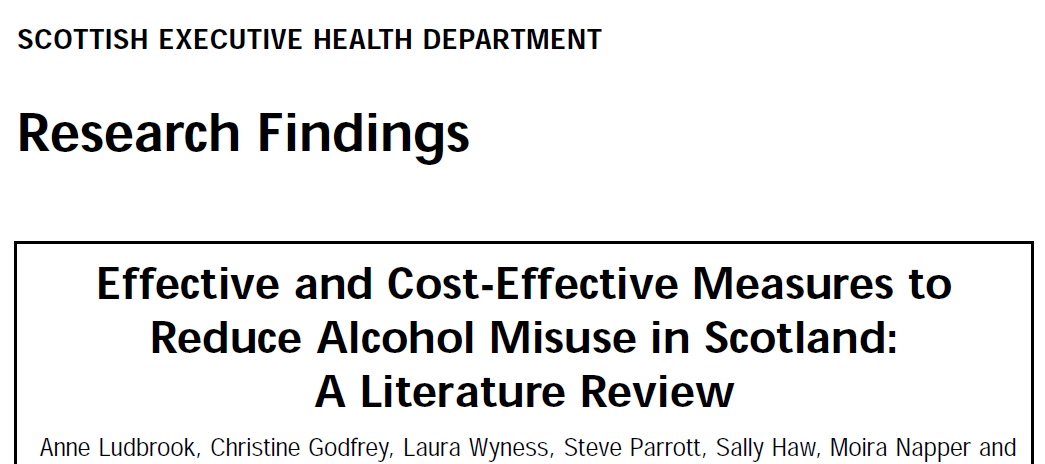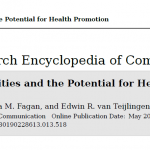 We know that public health works and thinks long-term. We’ll typically see the population benefits of reducing health risks such as tobacco use, obesity and high alcohol intake in ten or twenty years’ time. But we often forget that preceding public health research into the determinants of ill health and the possible public health solutions is also slow working. Evidence-based public health solutions can be unpopular with voters, politicians or commercial companies (or all). Hence these take time to get accepted by the various stakeholders and make their way into policies.
We know that public health works and thinks long-term. We’ll typically see the population benefits of reducing health risks such as tobacco use, obesity and high alcohol intake in ten or twenty years’ time. But we often forget that preceding public health research into the determinants of ill health and the possible public health solutions is also slow working. Evidence-based public health solutions can be unpopular with voters, politicians or commercial companies (or all). Hence these take time to get accepted by the various stakeholders and make their way into policies.
 I was, therefore, glad to see that Scotland won the Supreme Court case today in favour of a minimum price for a unit of alcohol. As we know from the media, the court case took five years. Before that the preparation and drafting of the legislation took years, and some of the original research took place long before that. Together with colleagues at the Health Economic Research Unit at the University of Aberdeen, the University of York and Health Education Board for Scotland, we conducted a literature review on Effective & Cost-Effective Measures to Reduce Alcohol Misuse in Scotland as early as 2001 [1]. Some of the initial research was so long ago it was conducted for the Scottish Executive, before it was even renamed the Scottish Government.
I was, therefore, glad to see that Scotland won the Supreme Court case today in favour of a minimum price for a unit of alcohol. As we know from the media, the court case took five years. Before that the preparation and drafting of the legislation took years, and some of the original research took place long before that. Together with colleagues at the Health Economic Research Unit at the University of Aberdeen, the University of York and Health Education Board for Scotland, we conducted a literature review on Effective & Cost-Effective Measures to Reduce Alcohol Misuse in Scotland as early as 2001 [1]. Some of the initial research was so long ago it was conducted for the Scottish Executive, before it was even renamed the Scottish Government.
Prof. Edwin van Teijlingen
CMMPH
Reference:
Research started years ago! Ludbrook et al.(2002) Effective & Cost-Effective Measures to Reduce Alcohol Misuse in Scotland: Lit Review, HERU, Univ. of Aberdeen. [ISBN: 0755932803] http://www.gov.scot/Resource/Doc/1124/0052548.pdf
 Using participatory asset mapping and PhotoVoice in Nepalese alcohol study
Using participatory asset mapping and PhotoVoice in Nepalese alcohol study New BU publication in Public Health
New BU publication in Public Health New research ethics paper Faculty of Health & Social Sciences
New research ethics paper Faculty of Health & Social Sciences










 Beyond Academia: Exploring Career Options for Early Career Researchers – Online Workshop
Beyond Academia: Exploring Career Options for Early Career Researchers – Online Workshop UKCGE Recognised Research Supervision Programme: Deadline Approaching
UKCGE Recognised Research Supervision Programme: Deadline Approaching SPROUT: From Sustainable Research to Sustainable Research Lives
SPROUT: From Sustainable Research to Sustainable Research Lives BRIAN upgrade and new look
BRIAN upgrade and new look Seeing the fruits of your labour in Bangladesh
Seeing the fruits of your labour in Bangladesh ECR Funding Open Call: Research Culture & Community Grant – Apply now
ECR Funding Open Call: Research Culture & Community Grant – Apply now ECR Funding Open Call: Research Culture & Community Grant – Application Deadline Friday 12 December
ECR Funding Open Call: Research Culture & Community Grant – Application Deadline Friday 12 December MSCA Postdoctoral Fellowships 2025 Call
MSCA Postdoctoral Fellowships 2025 Call ERC Advanced Grant 2025 Webinar
ERC Advanced Grant 2025 Webinar Update on UKRO services
Update on UKRO services European research project exploring use of ‘virtual twins’ to better manage metabolic associated fatty liver disease
European research project exploring use of ‘virtual twins’ to better manage metabolic associated fatty liver disease